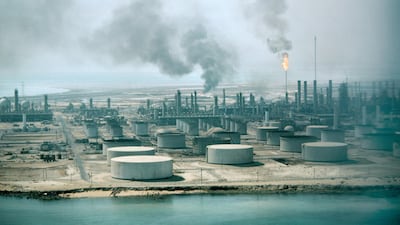Arab Petroleum Investments Corporation (Apicorp) exited from Saudi energy firm National Petroleum Services, one of the region's largest oil services companies, selling its 29 per cent equity stake to National Energy Services Reunited Corporation (NESR).
The investment was crucial to Apicorp’s diversification into the oil and gas services sector, as well as its commitment to regional energy companies, the firm said in a statement.
“NPS has been a highly successful investment and has enabled the consortium partners to realise significant value, a fitting endorsement of our strategy,” Apicorp chief executive Ahmed Ali Attiga said in a statement on Wednesday.
The firm did not disclose the value of the transaction.
Dammam-headquartered Apicorp made its original investment in NPS with regional institutional partners that included Dubai-based Fajr Capital in 2014. The consortium had acquired 90 per cent of the business.
________________
Read more:
Mena region to invest about $1tn in energy sector over coming five years
Apicorp credit profile enjoys strong shareholder support
Apicorp sees reforms opening the region up for investors
________________
The sale to Houston-based NESR last month was completed after the transaction received the seal of approval from the US Securities and Exchange Commission as well as the company’s own shareholders. NESR was listed on Nasdaq as a special purpose acquisition company in June last year, Apicorp said in a statement.
The acquisition of Apicorp’s stake will enable NESR to gain a foothold in the MENA and Asia Pacific region, where it looks to offer a drilling, completion and production services as well as equipment.
In March, Apicorp raised 630 million yuan (Dh348.8m) through its debut dim sum bond as it looked to diversify its funding sources.
Last year, the Saudi multilateral investment bank sold a $500m five-year sukuk as part of its $3 billion trust certificate programme in a transaction that attracted almost seven times the amount available for sale.
In April, the firm forecast that the Mena region will require $260bn of investment, comprising $152bn for 117GW of generating capacity and $108bn in transmission and distribution, to meet rising electricity demand.


